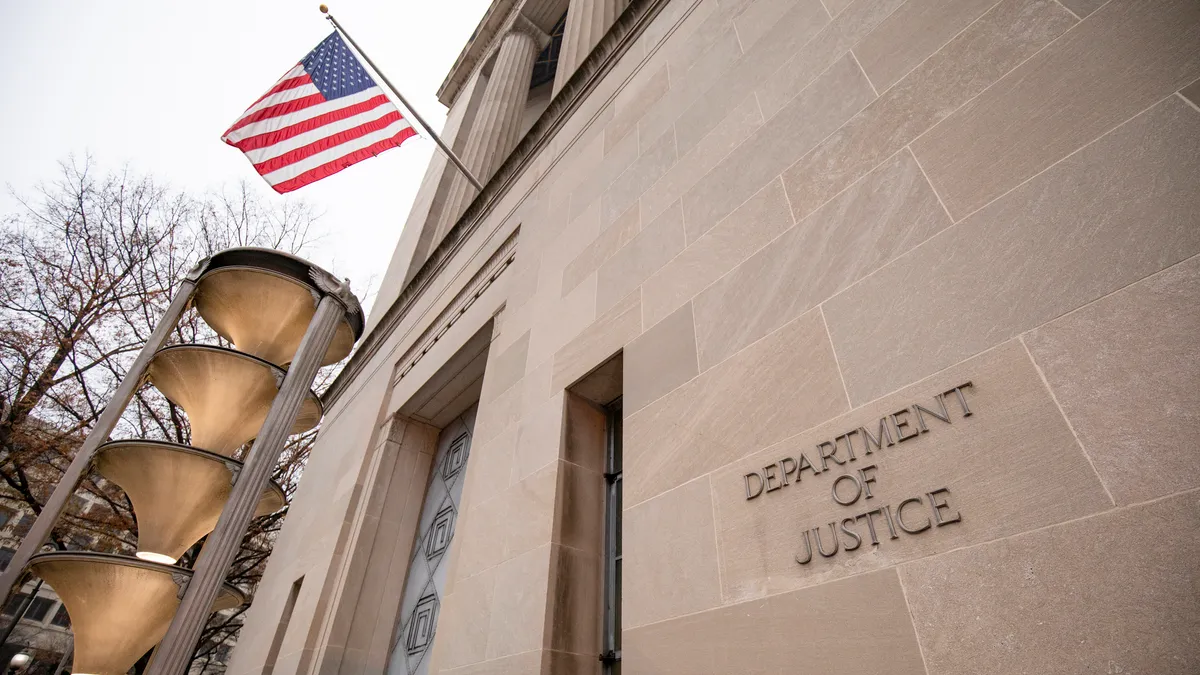The U.S. Department of Justice has abandoned its first-ever criminal indictments brought as part of a wider crackdown on no-poach agreements, potentially signaling a major shift in the agency’s enforcement efforts.
DOJ submitted a motion to dismiss the case in the U.S. District Court for the Northern District of Texas on Nov. 13 despite already having obtained a grand jury indictment against the defendants, Surgical Care Affiliates, LLC and affiliated entity SCAI Holdings, LLC. The firms were charged with two counts of conspiracy to restrain trade in violation of the Sherman Antitrust Act.
In court filings, DOJ did not articulate a reason for its request, stating only that dismissal “is not contrary to manifest public interest, and it will allow the conservation of this Court’s time and resources.” A federal judge granted the motion two days later. The agency declined to comment in an email to HR Dive.
The news marks a notable reversal considering the case against Surgical Care Affiliates followed multiple years of warnings by regulators, who cautioned that illegal no-poach agreements — even so-called gentlemen’s agreements — may lead to penalties up to and including prison sentences. The agreements are also per se illegal, according to 2016 DOJ and Federal Trade Commission guidance, meaning they are deemed as such even without an inquiry into their competitive effects.
This stance drew criticism from business groups including the Society for Human Resource Management, which said the possibility of per se liability and criminal sanctions “creates substantial risks” to HR departments and professionals.
DOJ made good on its warning with enforcement actions. Last year, a nursing services contractor pleaded guilty to conspiring with a competitor to allocate employee nurses and fix wages, leading to approximately $134,000 in damages. A separate case against a former director of global engineering for Raytheon subsidiary Pratt & Whitney was less successful, as a federal judge acquitted the defendants.
Last week’s dismissal “could signify the end of DOJ’s quest to enforce no-poach agreements as per se violations of the Sherman Act,” attorneys for Duane Morris wrote in a Nov. 17 client alert. The attorneys said DOJ rarely moves to dismiss indictments but also noted that the agency’s criminal no-poach enforcement efforts “[have] not gone well.”














